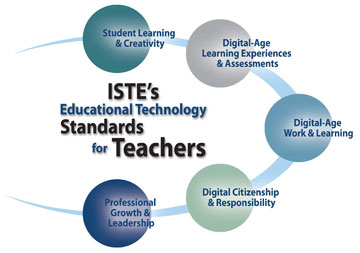Instructional
Technology Portfolio University Of West Georgia College of Education April, 2011 Barry D. Thibault |
|
Home | Resume | Field Experiences |Final Portfolio| Matrix | Resources Instructional Technology Degree Courses (Summer 2010-May 2011)  BOLD CLASSES ARE SPECIALIST DEGREE
External Resources |
|||||||||||||||||||||||||||||
| Inspiration | Microsoft Word Resume | ||||||||||||||||||||||||||||
| ComicLife | MEDT 7464 VoiceThread Project | ||||||||||||||||||||||||||||
| VoiceThread | MEDT 7470 Video Wiki | ||||||||||||||||||||||||||||
| Kidspiration | http://stu.westga.edu/~bthibau1/ Videos | ||||||||||||||||||||||||||||
| Douglass Theater Website | Techy Teachers- Google Docs Script | ||||||||||||||||||||||||||||
| MEDT 7467 project site | MEDT 7462 Project Website | ||||||||||||||||||||||||||||
| Douglass Theater Blog | School 2.0 Web Tools | ||||||||||||||||||||||||||||
| MEDT 7471 Project Site | MEDT 7468 Project Blog | ||||||||||||||||||||||||||||
| MEDT 7464 Group Blog | Thibault's Portfolio Home Page | ||||||||||||||||||||||||||||
| College of Education (MEDT) | |||||||||||||||||||||||||||||
CONCEPTUAL FRAMEWORKThe conceptual framework of the College of Education at UWG forms the basis on which programs, courses, experiences, and outcomes are created. By incorporating the theme “Developing Educators for School Improvement”, the College assumes responsibility for preparing educators who can positively influence school improvement through altering classrooms, schools, and school systems (transformational systemic change). Ten descriptors (decision makers, leaders, lifelong learners, adaptive, collaborative, culturally sensitive, empathetic, knowledgeable, proactive, and reflective) are integral components of the conceptual framework and provide the basis for developing educators who are prepared to improve schools through strategic change. National principles (INTASC), propositions (NBPTS), and standards (Learned Societies) also are incorporated as criteria against which candidates are measured. The mission of the College of Education is to develop educators who are prepared to function effectively in diverse educational settings with competencies that are instrumental to planning, implementing, assessing, and re-evaluating existing or proposed practices. This course’s objectives are related directly to the conceptual framework and appropriate descriptors, principles or propositions, and Learned Society standards are identified for each objective. Class activities and assessments that align with course objectives, course content, and the conceptual framework are identified in a separate section of the course syllabus. Link
to Conceptual Framework Decision making: selecting topic areas in the student’s field to design and develop instructional materials and choosing topic areas for technology-infused lesson plans Leadership: increasing the student’s knowledge and skills in instructional technology in order to integrate technology more effectively into the curriculum and to assist others in infusing technology into the workplace Lifelong learning: studying how to use and integrate technology into his/her personal and professional life Being adaptive: changing educational practices to meet the diverse needs of learners Collaboration: Working with colleagues and stakeholders to plan and carry out school improvements in technology Cultural sensitivity: adapting interventions and technology innovations to meet the varying and diverse needs of learners Empathy: demonstrating sensitivity to the needs of individuals, the family, and community needs Knowledge: drawing on pedagogical, content, and professional knowledge Being proactive: implementing new interventions and innovations in technology to better serve learners Reflection: engaging in ongoing, continuous reflection related to technology to determine the effectiveness of interventions/innovations and school changes that are needed to more effectively integrate technology into the curriculum NETS for Teachers 2008 1. Facilitate and Inspire Student Learning and Creativity
2. Design and Develop Digital-Age Learning Experiences and Assessments
3. Model Digital-Age Work and Learning
4. Promote and Model Digital Citizenship and Responsibility
5. Engage in Professional Growth and Leadership
|

